Play Vintage Games at the Red Hook Pinball Museum
Explore the museum's collection of meticulously restored vintage machines from as early as the 1800s!


Prospect Park. Photo by gigi_nyc from the Untapped Cities Google Glass Scavenger Hunt
Strolling across the city’s iconic bridges rank high on the list of quintessential New York City activities—hence the reason the crowds at the Brooklyn Bridge or the vehicles on the Triborough Bridge can makes these strolls somewhat challenging. If you’re looking for structures built with pedestrians and bikers exclusively in mind then, check out these 11 pedestrian bridges below.
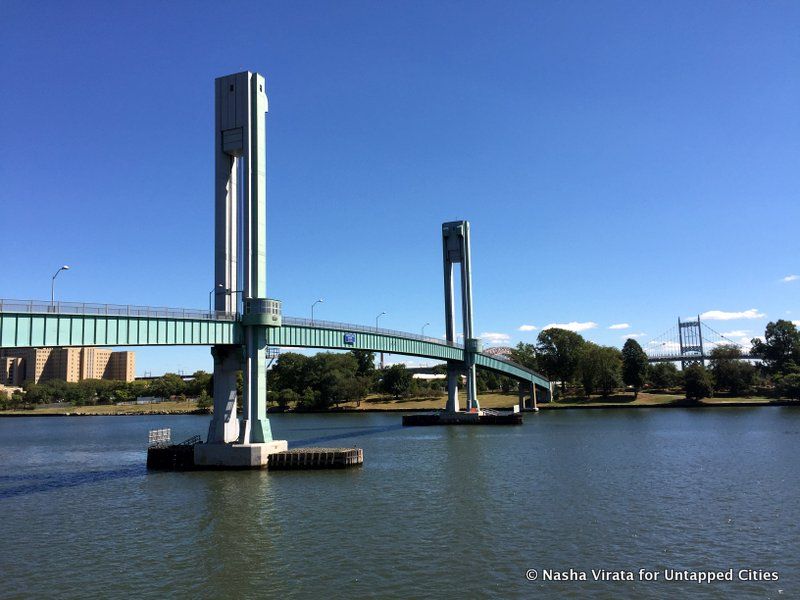
The Ward’s Island Bridge, a vertical lift bridge, is exclusively for use by pedestrians and bikers to access Ward’s Island on the East River. Originally painted in a yellow, red, and blue pattern, the bridge was recoated to its current blue-green somewhat unexpectedly, taking many neighbors by surprise in 1986. After a restoration in 2012, the bridge is now open 24/7. The restricted access in the past was actually a result of Manhattan residents fearing the allegedly criminal behavior of the patients in the Manhattan State Psychiatric Center, then located on the island.
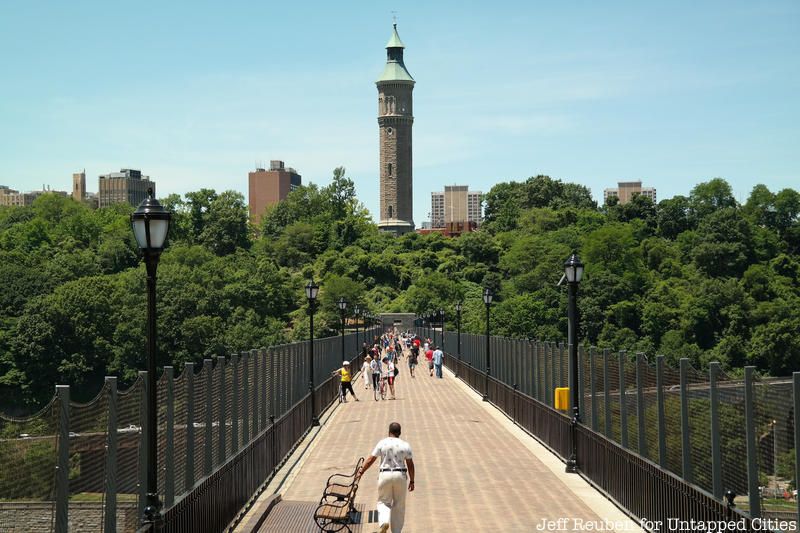
High Bridge narrowly escaped demolition in the 1920s and was recently reopened in 2015. The High Bridge opened in 1872 to provide water access to the rapidly growing population of Washington Heights – and in response to the widespread popularity of the flush toilet. More notably perhaps, the tower is one the historic structures in the city still sites which you can legally climb. High Bridge was reopened as a pedestrian crossway over the Harlem River last year.
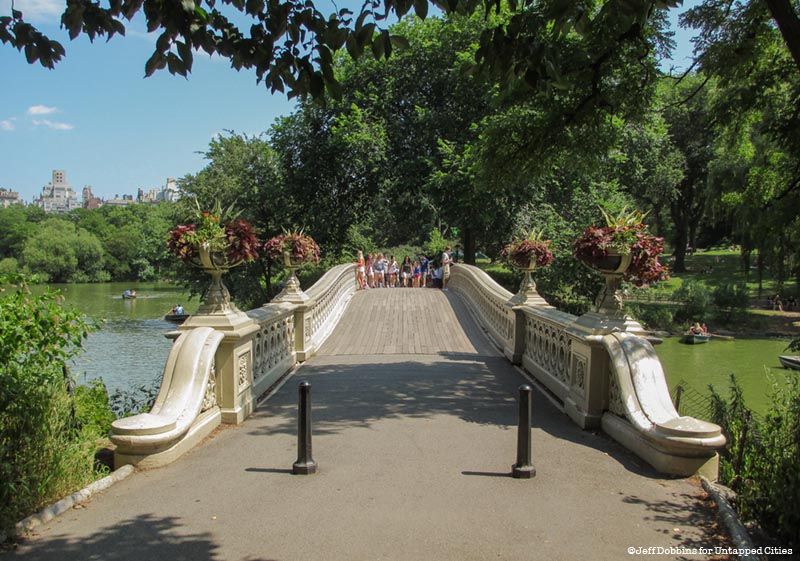
According to the Central Park Conservancy, the Bow Bridge was the first cast-iron bridge in Central Park and the second oldest in the country. While the original plan was for a suspension bridge, the commissioners and park designers compromised on this low-lying structure named after its shape. Check out some great vintage photos of Central Park, including Bow Bridge, from the 1870s around the time the park was built.
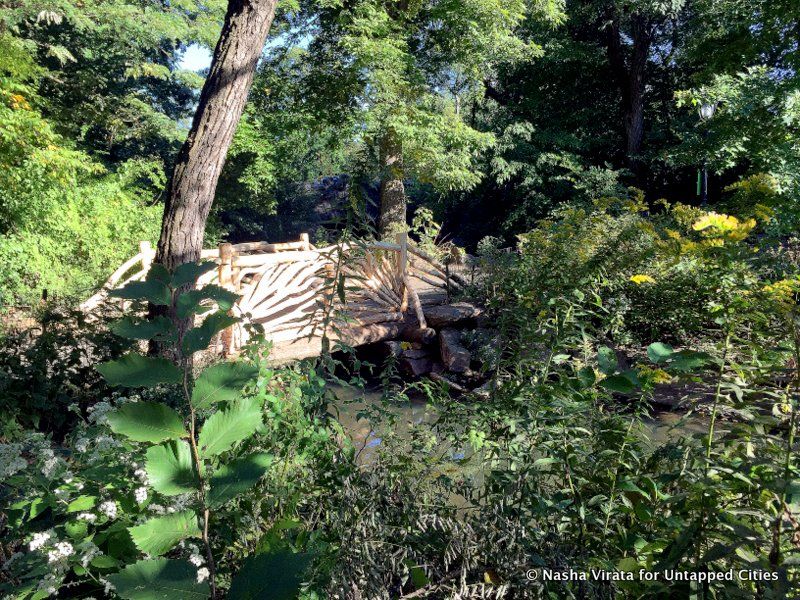
Located around the middle of Central Park near the Ramble, the Gill Rustic Bridge is a quaint crossing over the Azalea Pond, and one of several – all similar in appearance and construction. The Pond itself is fed by the Gill, a stream in the park. The Centra Park Conservancy writes, “The area gets its name from the century-old azalea plants that crown its southern edge.”
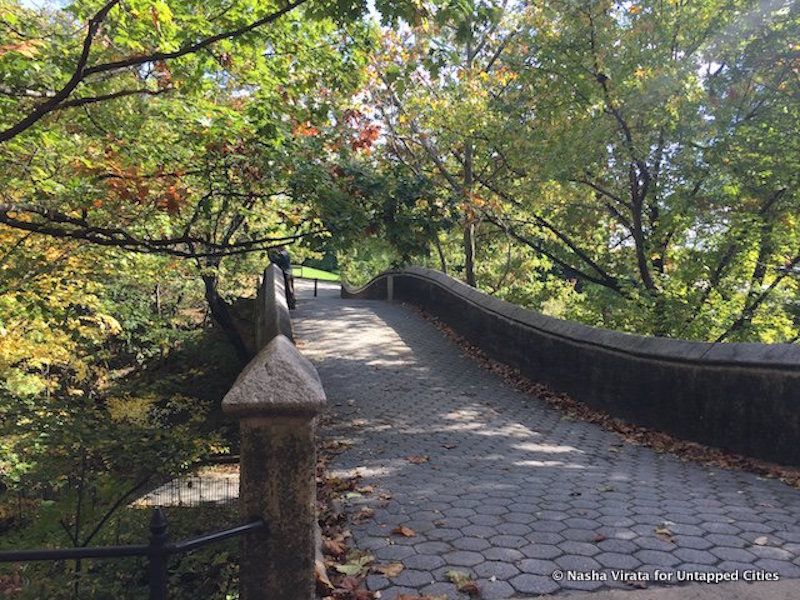
Built in the 19th century, Hester Bridge at the New York Botanical Garden crosses the Bronx River, connecting two sections of the Thain Family Forest together. According to the NYBG’s Twitter account, the bridge also plays a prominent role in American television history – appearing in the opening credits of Sesame Street. The New York Botanical Garden’s official Fall Foliage Tracker can tell you the best weekend to schedule your autumn visit.
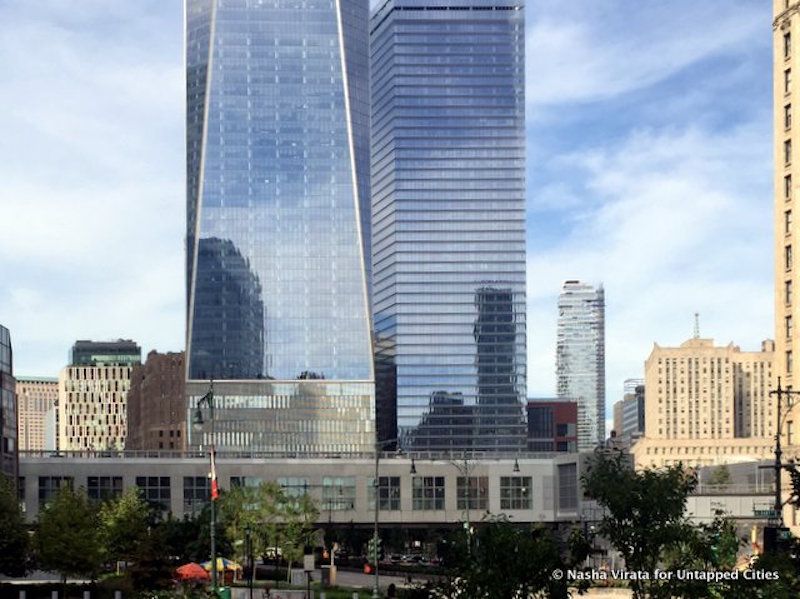
Located at Chambers, Liberty and Rector Streets, these three footbridges provide a more pedestrian-friendly way to cross the West Side Highway than you get on the ground. All three bridges have been undergoing a series of repairs and renovations, in keeping with the surrounding neighborhood after 9/11. A Vesey Street bridge was demolished in 2013 while that structure was itself a temporary replacement for one destroyed on 9/11.
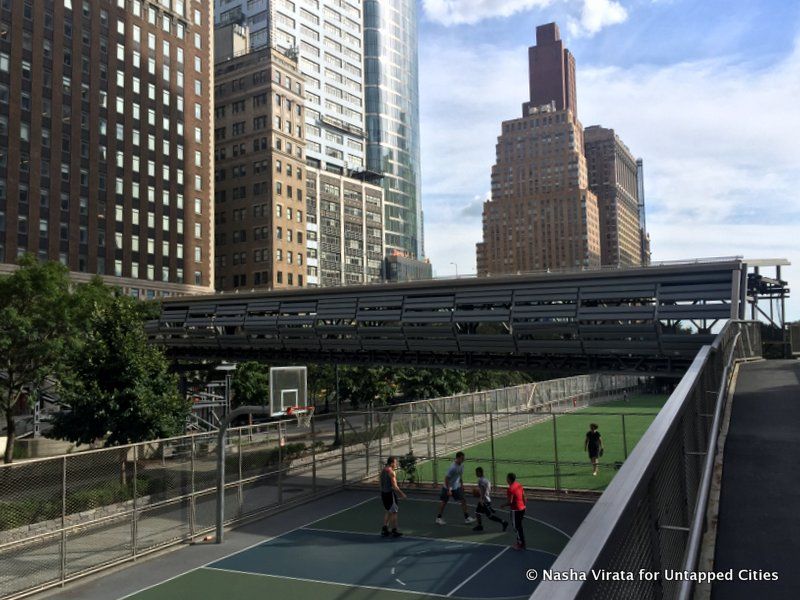
NYCEDC recently confirmed plans to replace the current bridge at Rector Street with the “West Thames Street Pedestrian Bridge”, a project in coordination with Weidlinger Associates and WXY Architects & Urban Design. The current crossing was also initially a temporary solution after 9/11 but was recently declared a permanent feature. Finally, the Chambers Street pedestrian bridge, provides the students and staff of Stuyvesant High School, as well as the residents of Battery Park City, with above-street access to Manhattan east of the West Side Highway.
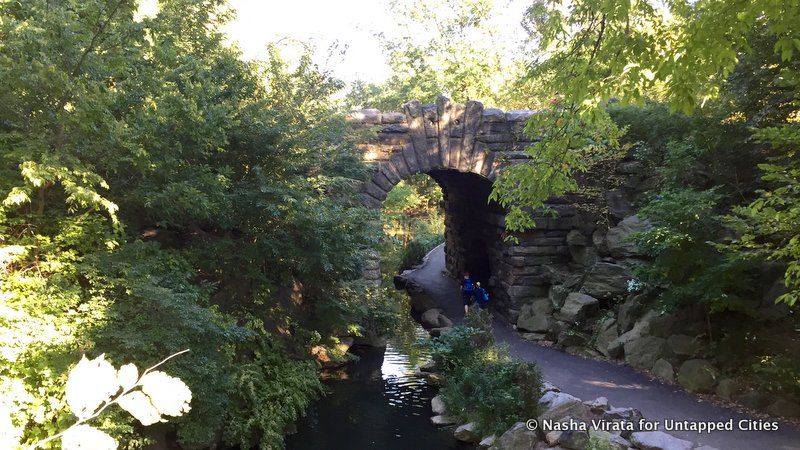
While this arch bridge is built of stone, (and not marble unfortunately), the Claremont Arch is one of the more obscure spots in Central Park. The bridge previously directed people to the Claremont Riding Academy on East 86th Street, thus providing the name that remains today.
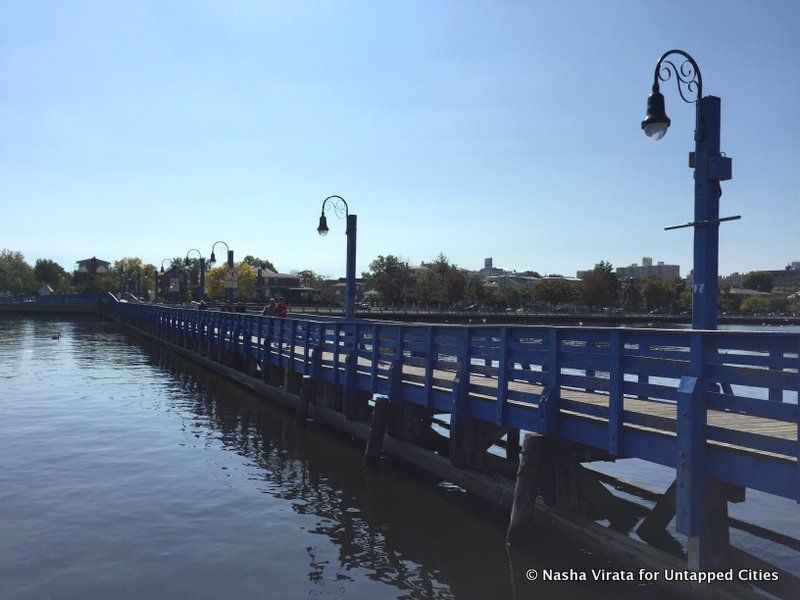
This bright blue wooden footbridge was first built in 1880 to connect the posh resort area of Manhattan Beach with the rest of Brooklyn. Nearby residents keep the bridge busy throughout the day and can be seen strolling by the water or setting up their fishing spot. You can make this unusual looking structure a stop while sampling the Georgian cuisine of Sheepshead Bay.

Prospect Park. Photo by gigi_nyc from the Untapped Cities Google Glass Scavenger Hunt
Prospect Park is the perfect place to go hunting for pedestrian bridges – ranging from wood, to Beton concrete, to cast iron, standstone and granite, and local boulders. The Terrace Bridge, designed by Calvert Vaux and pictured above, is a replacement of an earlier wooden bridge and actually also accommodates cars – but many of the other bridges in Prospect Park are pedestrian only.
Next, check out the Top 10 Secrets of Central Park and the Secrets of Prospect Park.
Subscribe to our newsletter